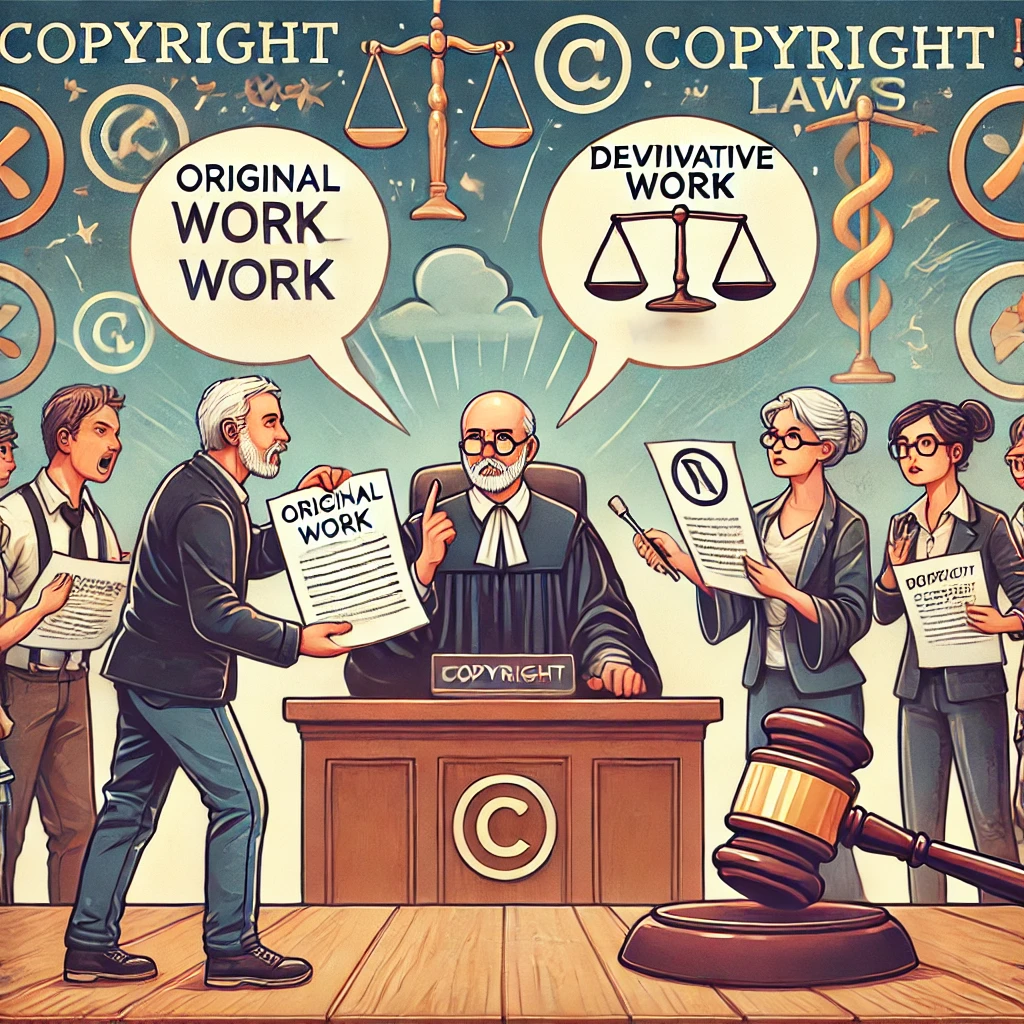Call us now:
The dispute over derivative works in Vietnam. A dispute over derivative works is a conflict or legal disagreement between parties concerning the creation, ownership, use, or exploitation of derivative works.

What is a derivative work dispute?
A derivative work dispute refers to legal conflicts or disagreements between parties related to the creation, ownership, use, or exploitation of a derivative work. A derivative work is one created based on an original work, such as a translation, adaptation, transformation, or revision. These disputes can arise in various forms, depending on how the parties involved use, own, or exploit the derivative work.
Types of Derivative Work Disputes in Vietnam
Here are some common types of disputes related to derivative works in Vietnam:
Disputes over the right to create a derivative work: This type of dispute occurs when a party creates a derivative work without the permission of the original copyright holder. The owner of the original work may file a lawsuit against the creator of the derivative work for copyright infringement.
Disputes over ownership of the derivative work: When multiple parties are involved in the creation of a derivative work, disputes may arise over who holds the copyright. This often occurs in collaborative projects where ownership rights were not clearly defined from the beginning.
Disputes over moral rights: These disputes involve the moral rights of the author, such as the right to be credited or the right to protect the integrity of the derivative work. An author may dispute if they believe their derivative work has been altered, distorted, or mutilated in a way that harms their honor or reputation.
Disputes over property rights: These disputes concern property rights over the derivative work, such as the right to copy, distribute, or use the work for profit. For example, a party may dispute who has the right to exploit the derivative work through sales, rental, or licensing.
Parties may also face disputes over royalties and financial benefits: This type of dispute involves the division of profits earned from the exploitation of the derivative work. For instance, an author may demand a share of the profits from the sale or use of the derivative work, leading to disagreements over the royalties or economic benefits they are entitled to.
These types of disputes require a deep understanding of intellectual property law and are often resolved through legal proceedings or mediation between the involved parties.
Resolution of Derivative Work Disputes under Vietnamese law
Filing a lawsuit to resolve a derivative work dispute is a legal process in which one party (the plaintiff) submits a claim to the court requesting a resolution of a dispute related to the creation, ownership, or use of a derivative work, claiming that another organization or individual has violated their copyright or legal rights.
1. Identifying the Legal Basis
Before filing a lawsuit, the plaintiff must clearly establish their copyright over the original work as well as over the derivative work. This includes determining whether the derivative work was created without the permission of the original copyright holder and whether any acts constitute copyright infringement under the law.
This involves reviewing the provisions of the Intellectual Property Law and relevant legal documents regarding copyright and derivative works.
2. Preparing the Lawsuit
Draft the lawsuit with clear content, outlining the plaintiff’s demands, including identifying the infringement, seeking damages, or requesting an end to the violation and the destruction of infringing materials.
Collect and prepare all relevant evidence to prove copyright ownership and the defendant’s infringement. Evidence may include contracts, copyright registration certificates, correspondence, emails, or any other documents related to the dispute. These documents and evidence must be submitted along with the lawsuit to the competent People’s Court.
3. Filing the Lawsuit
The plaintiff must file the lawsuit with the competent court that handles intellectual property disputes. Once the court deems the lawsuit admissible, it will request the plaintiff to submit an advance court fee based on the value of the dispute.
4. Participating in the Court Proceedings
Both the plaintiff and the defendant participate in court proceedings, where they can present their arguments, make requests, and provide evidence to support their claims. The court will hold mediation sessions and hearings to resolve the dispute.
After reviewing the case, examining the evidence, and applying relevant legal provisions, the court will issue a ruling on whether the defendant has violated copyright. The court may also impose remedies such as ordering the cessation of the violation, the retrieval and destruction of infringing materials, damages, public apologies, or other legal penalties.
If either party disagrees with the first-instance court’s ruling, they have the right to appeal to a higher court for a retrial in the appellate process.
5. Legal Advice and Expertise
Resolving derivative work disputes requires deep knowledge of intellectual property law. Therefore, it is essential to seek legal advice from experienced lawyers to protect one’s rights throughout the litigation process. The resolution of derivative work disputes is complex, requiring thorough preparation and legal expertise to ensure the plaintiff’s rights are properly protected.
Contact Us Now:
DCNH LAW
Address: 38B Tran Nhat Duat, Phuoc Hoa ward, Nha Trang city, Khanh Hoa province, Vietnam.
Phone: (+84) 343320223 – 974278893
Email: dcnh.law@gmail.com


